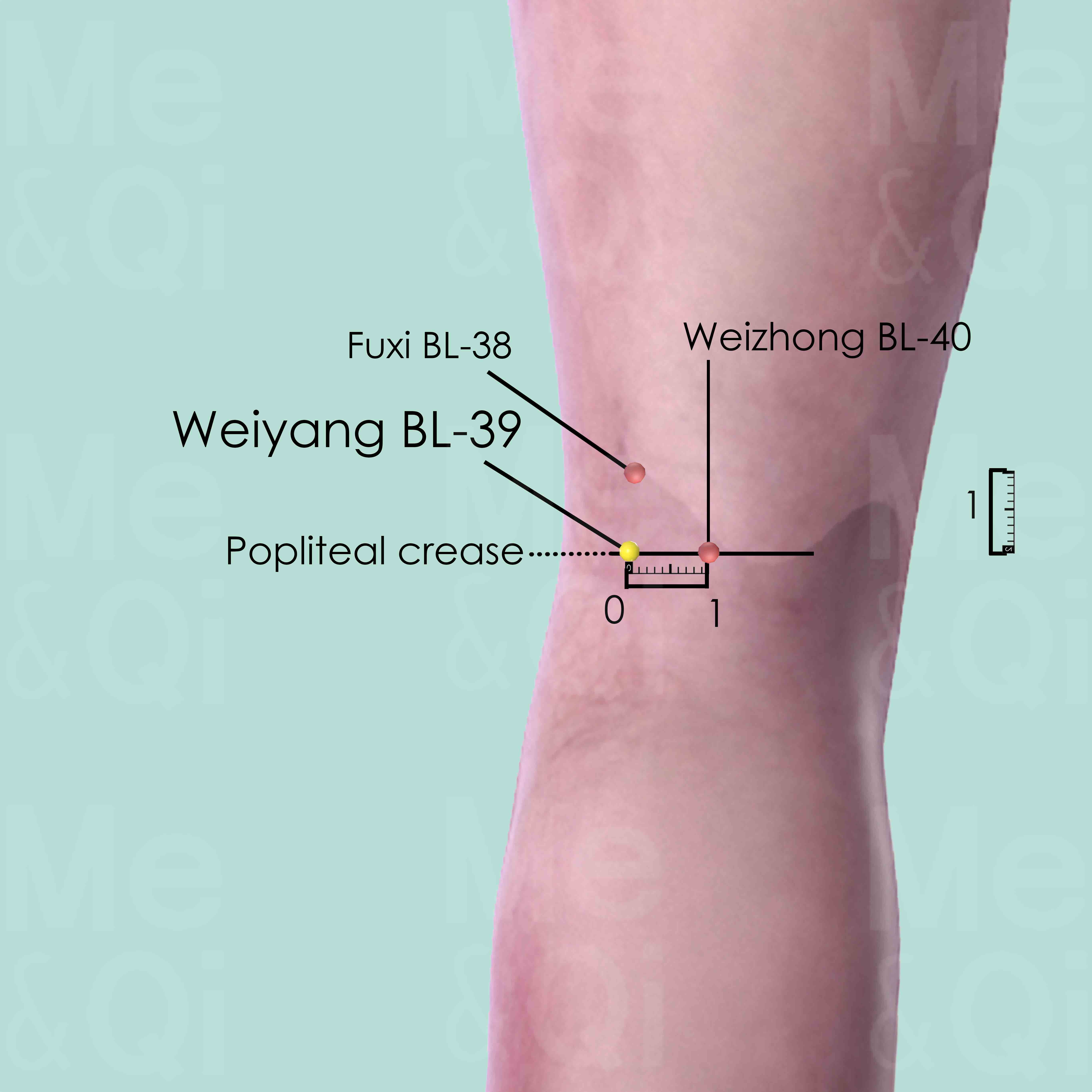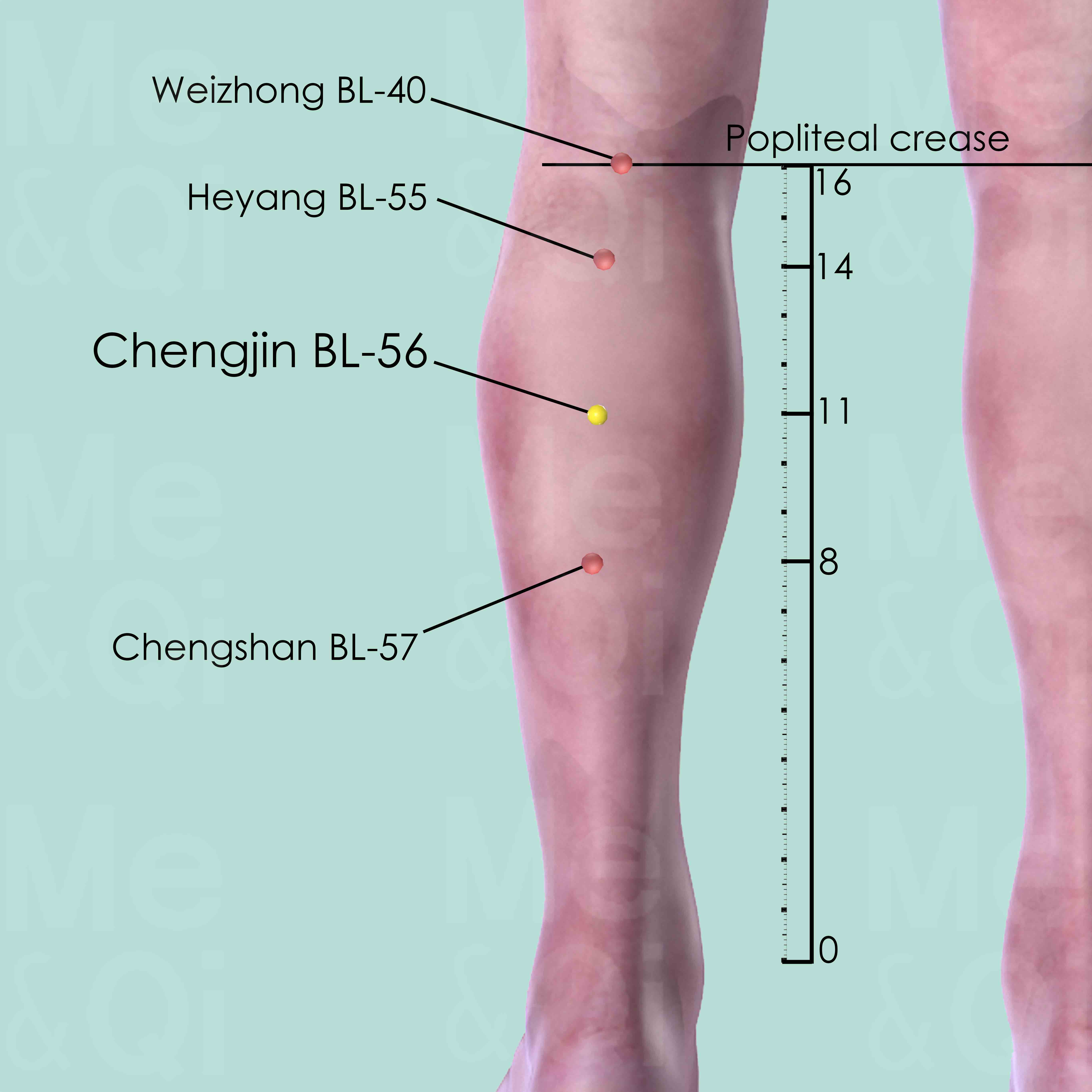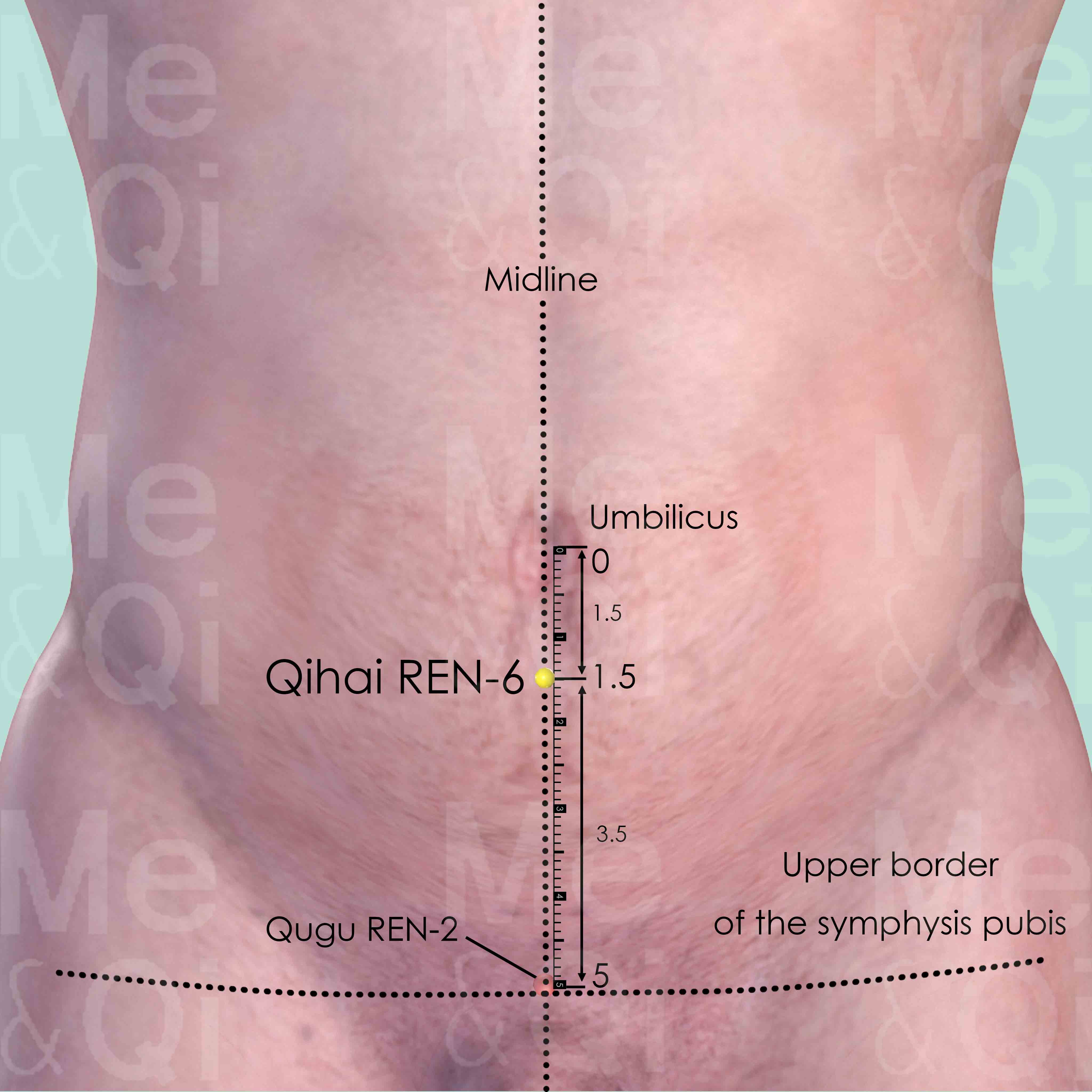Urinary Incontinenceaccording to TCM
Symptom family: Urinary Incontinence and Dysfunction
Parent symptom: Urinary Or Fecal Incontinence
Sub-symptom(s): Postpartum Incontinence
What is Urinary Incontinence?
Urinary incontinence refers to the involuntary leakage of urine, indicating a disruption in the urinary system's storage and release functions. It ranges from occasional, minor leaks when one coughs or sneezes to a strong, sudden urge to urinate that's difficult to control. This condition can affect daily activities, causing distress or embarrassment for those who experience it.
How Does TCM View Urinary Incontinence?
Traditional Chinese Medicine (TCM) interprets urinary incontinence as a sign of underlying imbalances within the body's vital energies, particularly relating to the Kidney and Bladder.
It's often categorized as a Deficiency condition, where the body's Qi (vital energy) or Yang (active, warming energy) is insufficient to control the Bladder. TCM practitioners aim to identify the specific disharmony patterns to provide tailored treatment.
Root Causes of Urinary Incontinence in TCM
In Traditional Chinese Medicine (TCM), urinary incontinence is often linked to imbalances in Qi, particularly within the Kidney system. Kidney Qi not Firm indicates a Qi Deficiency, leading to symptoms such as a weak urine stream, frequent urination, and general fatigue. This pattern suggests the body's inability to hold urine effectively.
A more severe Qi deficiency is seen in Qi Sinking or Collapsing, where weakened Qi fails to support the body's organs, causing symptoms like organ prolapse and a sensation of abdominal heaviness. These TCM patterns highlight the critical role of Qi in sustaining organ stability and function. Treatment focuses on strengthening Qi and correcting its sinking to alleviate incontinence.
Explore below more details about what might cause Urinary incontinence according to TCM.
- By Syndrome
- By Organ
- Qi Deficiency
- Yang Deficiency
- Qi Sinking
- Kidney
Qi Deficiency
Qi Deficiency in TCM is like running low on battery power. Qi is the vital energy that powers every function in your body. When there's a Qi Deficiency, it means your body doesn't have enough of this essential energy. This can make you feel tired all the time, weak, or even cause shortness of breath. It's similar to how you feel when you haven't had enough sleep or nutritious food. Your body just doesn't have the energy it needs to perform at its best. Unlike modern medicine, which often focuses on specific physical causes for fatigue and weakness, TCM views Qi Deficiency as an overall energy depletion that affects your entire well-being, and it seeks to replenish and balance this vital energy.... see more
Qi Deficiency Patterns That Can Lead to Urinary Incontinence
| Pattern Name | Relevant Symptoms | Relevant Formulas |
|---|---|---|
| Kidney Qi not Firm | Incontinence of urine, Lower back pain, Lower back weakness, Polyuria, Weak urine stream, Enuresis, Nocturnal emission, Generalized fatigue, Chills, Cold extremities, White vaginal discharge, Bearing down sensation in abdomen, Recurrent miscarriage... see more | You Gui Wan | Jin Suo Gu Jing Wan | Fu Tu Dan | Qing E Wan | Tu Si Zi Wan |
Yang Deficiency
Yang deficiency in TCM refers to a state where the body's Yang energy, which is responsible for warmth, activity, and function, is weakened or diminished. This pattern of disharmony often arises from chronic illness, aging, or inherent constitutional weakness. Symptoms of Yang deficiency are typically associated with cold and sluggishness, such as a feeling of coldness, cold extremities, pale complexion, low energy or fatigue, and a desire for warmth. Digestive issues like poor appetite, loose stools, and water retention can also be indicative of Yang deficiency.... see more
Yang Deficiency Patterns That Can Lead to Urinary Incontinence
| Pattern Name | Relevant Symptoms | Relevant Formulas |
|---|---|---|
| Kidney Yang Deficiency | Incontinence of urine, Lower back pain, Dizziness, Tinnitus, Weak and cold knees, Lower back coldness, Chills, Weak legs, Bright pale face, Generalized fatigue, General weakness, Leg edema, Female infertility, Diarrhea, Depression, Erectile dysfunction, Premature ejaculation, Oligospermia, Low sex drive, Pale and abudant urination, Constipation... see more | You Gui Wan | Tu Si Zi Wan | Ba Wei Di Huang Wan | Er Xian Tang | Shen Qi Wan | Wu Zi Yan Zong Wan | Ji Chuan Jian |
Qi Sinking
Qi Sinking is a pattern of disharmony in TCM where the body's energy, or Qi, is thought to "sink" or drop down. Imagine a balloon slowly deflating and falling; that's similar to what happens with Qi Sinking. This can lead to feelings of heaviness, fatigue, and even physical symptoms like prolapse of organs or frequent urination. It's as if the body's energy, which usually supports and holds things in place, isn't able to do its job properly. TCM views this as an imbalance where the uplifting and supporting qualities of Qi are weakened.... see more
Qi Sinking Patterns That Can Lead to Urinary Incontinence
| Pattern Name | Relevant Symptoms | Relevant Formulas |
|---|---|---|
| Qi Collapsing or Qi Sinking | Incontinence of urine, Uterine prolapse, Prolapsed bladder, Stomach prolapse, Nephroptosis, Anus prolapse, Bearing down sensation in abdomen, Hemorrhoids, Chronic diarrhea, Frequent and urgent urination, Urinary incontinence, Generalized fatigue, Low energy, Intestines prolapse, Vaginal prolapse... see more | Bu Zhong Yi Qi Tang | Du Shen Tang |
Kidney
In TCM the Kidneys are regarded as the body's most fundamental reservoir of Essence, known as Jing, which influences growth, reproduction, and aging. They are not just organs for filtering blood, but a holistic system governing vital life forces. When the Kidneys malfunction in TCM, it can manifest as a variety of health issues, such as chronic fatigue, reproductive problems, imbalances in fluid metabolism leading to edema or dryness, lower back pain, and a sense of fear or insecurity.... see more
Kidney Patterns That Can Lead to Urinary Incontinence
Common Symptoms: Lower Back Pain Nocturnal Emission Generalized Fatigue Chills Cold Extremities Back Pain Urine Dribbling Frequent Urination
| Pattern Name | Relevant Symptoms | Relevant Formulas |
|---|---|---|
| Kidney Qi not Firm | Incontinence of urine, Lower back pain, Lower back weakness, Polyuria, Weak urine stream, Enuresis, Nocturnal emission, Generalized fatigue, Chills, Cold extremities, White vaginal discharge, Bearing down sensation in abdomen, Recurrent miscarriage... see more | You Gui Wan | Jin Suo Gu Jing Wan | Fu Tu Dan | Qing E Wan | Tu Si Zi Wan |
| Kidney Yang Deficiency | Incontinence of urine, Lower back pain, Dizziness, Tinnitus, Weak and cold knees, Lower back coldness, Chills, Weak legs, Bright pale face, Generalized fatigue, General weakness, Leg edema, Female infertility, Diarrhea, Depression, Erectile dysfunction, Premature ejaculation, Oligospermia, Low sex drive, Pale and abudant urination, Constipation... see more | You Gui Wan | Tu Si Zi Wan | Ba Wei Di Huang Wan | Er Xian Tang | Shen Qi Wan | Wu Zi Yan Zong Wan | Ji Chuan Jian |
TCM Herbal Formulas for Urinary Incontinence
TCM treatment for urinary incontinence may include formulas such as You Gui Wan, which aims to warm Yang and strengthen Qi with herbs like Prepared aconite (Zhi Fu Zi), renowned for its warming properties. This approach is intended to bolster the body’s vital energies, thereby improving bladder control.
Another key formula might be Bu Zhong Yi Qi Tang, containing Milkvetch Roots (Huang Qi), which lifts the body's Qi, potentially alleviating conditions of Qi sinking that can lead to incontinence.
Explore below some TCM herbal formulas used to address urinary incontinence, organized by cause and by formula type.
- By Cause
- By Formula Type
- Qi Deficiency
- Yang Deficiency
- Qi Sinking
- Formulas that warm yang and tonify
- Formulas that secure essence and stop enuresis
- Formulas that tonify yin and yang
- Formulas that tonify qi
- Formulas that nourish yin and tonify
- Formulas that moisten intestines and unblock bowels
- Formulas that rescue devastated yang
- Formulas that warm the middle and dispel cold
- Formulas that harmonize liver-Spleen
Top Formula for Qi Deficiency:
You Gui Wan
Suitable for Qi Deficiency patterns that may cause urinary incontinence, such as Kidney Qi not Firm
Learn moreAll Formulas Recommended for Urinary Incontinence Caused by Qi Deficiency
| Formula | Patterns Suitable For |
|---|---|
| You Gui Wan | Kidney Qi not Firm |
| Tu Si Zi Wan | Kidney Qi not Firm |
| Jin Suo Gu Jing Wan | Kidney Qi not Firm |
| Fu Tu Dan | Kidney Qi not Firm |
| Qing E Wan | Kidney Qi not Firm |
Top Formula for Yang Deficiency:
You Gui Wan
Suitable for Yang Deficiency patterns that may cause urinary incontinence, such as Kidney Yang Deficiency
Learn moreAll Formulas Recommended for Urinary Incontinence Caused by Yang Deficiency
| Formula | Patterns Suitable For |
|---|---|
| You Gui Wan | Kidney Yang Deficiency |
| Tu Si Zi Wan | Kidney Yang Deficiency |
| Ba Wei Di Huang Wan | Kidney Yang Deficiency |
| Er Xian Tang | Kidney Yang Deficiency |
| Shen Qi Wan | Kidney Yang Deficiency |
| Wu Zi Yan Zong Wan | Kidney Yang Deficiency |
| Ji Chuan Jian | Kidney Yang Deficiency |
Top Formula for Qi Sinking:
Bu Zhong Yi Qi Tang
Suitable for Qi Sinking patterns that may cause urinary incontinence, such as Qi Collapsing or Qi Sinking
Learn moreAll Formulas Recommended for Urinary Incontinence Caused by Qi Sinking
| Formula | Patterns Suitable For |
|---|---|
| Bu Zhong Yi Qi Tang | Qi Collapsing or Qi Sinking |
| Du Shen Tang | Qi Collapsing or Qi Sinking |
Formulas that warm Yang and tonify
These formulas are suitable for some urinary incontinence-causing patterns like Kidney Qi not Firm or Kidney Yang Deficiency.
One such formula is You Gui Wan, with prepared aconite as a key herb.
Other formulas of this category are listed in the table below.
All "formulas that warm yang and tonify" recommended for urinary incontinence
| Formula | Patterns Suitable For (if applicable) |
|---|---|
| You Gui Wan | Kidney Qi not Firm, Kidney Yang Deficiency |
| Tu Si Zi Wan | Kidney Qi not Firm, Kidney Yang Deficiency |
| Qing E Wan | Kidney Qi not Firm |
| Shen Qi Wan | Kidney Yang Deficiency |
| Wu Zi Yan Zong Wan | Kidney Yang Deficiency |
Formulas that secure Essence and stop enuresis
These formulas are suitable for some urinary incontinence-causing patterns like Kidney Qi not Firm.
One such formula is Jin Suo Gu Jing Wan, with milkvetch seeds as a key herb.
Other formulas of this category are listed in the table below.
All "formulas that secure essence and stop enuresis" recommended for urinary incontinence
| Formula | Patterns Suitable For (if applicable) |
|---|---|
| Jin Suo Gu Jing Wan | Kidney Qi not Firm |
| Fu Tu Dan | Kidney Qi not Firm |
| Suo Quan Wan | Not applicable |
Formulas that tonify Yin and Yang
These formulas are suitable for some urinary incontinence-causing patterns like Kidney Yang Deficiency.
One such formula is Er Xian Tang, with curculigo rhizome as a key herb.
Other formulas of this category are listed in the table below.
All "formulas that tonify yin and yang" recommended for urinary incontinence
| Formula | Patterns Suitable For (if applicable) |
|---|---|
| Er Xian Tang | Kidney Yang Deficiency |
| Gui Zhi Jia Long Gu Mu Li Tang | Not applicable |
Formulas that tonify Qi
These formulas are suitable for some urinary incontinence-causing patterns like Qi Collapsing or Qi Sinking.
One such formula is Bu Zhong Yi Qi Tang, with milkvetch root as a key herb.
Other formulas of this category are listed in the table below.
All "formulas that tonify qi" recommended for urinary incontinence
| Formula | Patterns Suitable For (if applicable) |
|---|---|
| Bu Zhong Yi Qi Tang | Qi Collapsing or Qi Sinking |
| Bu Fei Tang | Not applicable |
Formulas that nourish Yin and tonify
These formulas are suitable for some urinary incontinence-causing patterns like Kidney Yang Deficiency.
One such formula is Ba Wei Di Huang Wan, with prepared rehmannia as a key herb.
Formulas that moisten Intestines and unblock bowels
These formulas are suitable for some urinary incontinence-causing patterns like Kidney Yang Deficiency.
One such formula is Ji Chuan Jian, with desert-living cistanche as a key herb.
Formulas that rescue devastated Yang
These formulas are suitable for some urinary incontinence-causing patterns like Qi Collapsing or Qi Sinking.
One such formula is Du Shen Tang, with ginseng as a key herb.
Formulas that warm the middle and dispel Cold
Urinary incontinence can be treated by these formulas when it is due to cold in the middle jiao (digestive region), necessitating warming and cold-dispelling actions.
One such formula is Huang Qi Jian Zhong Tang, with milkvetch root as a key herb.
Formulas that harmonize Liver-Spleen
Urinary incontinence can be treated by these formulas when there's an imbalance between the Liver and Spleen systems, often manifesting as digestive disturbances and emotional fluctuations.
One such formula is Si Ni San, with bupleurum root as a key herb.
Acupoints for Urinary Incontinence
Acupuncture may also be utilized to address urinary incontinence, with points such as Qihai REN-6 being central in tonifying the Original Qi and lifting the sinking Qi. This point is considered influential in strengthening the Kidneys and tonifying Yang, which can help in restoring Bladder control.
Another point, Weiyang BL-39, is traditionally used for its effectiveness in controlling the water passages and aiding in urinary functions. These points are selected to align with the individual's specific TCM diagnosis and overall treatment strategy.
Explore below some acupoints used to address urinary incontinence, organized by meridian.
- By Meridian
- Bladder Channel
- Directing Vessel

Weiyang BL-39
At the lateral end of the popliteal crease, on the medial border of the tendon of biceps femoris muscle, 1 cun lateral to Weizhong BL-40 which is the midpoint of the popliteal crease. It is also 1 cun below Fuxi BL-38.

Chengjin BL-56
5 cun inferior to Weizhong BL-40 which is the midpoint of the popliteal crease. In the center of the belly of gastrocnemius muscle, midway between Heyang BL-55 and Chengshan BL-57.

